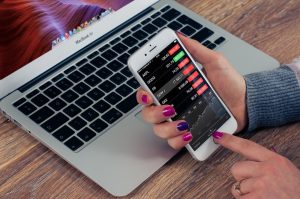Choosing the Right Broker for Forex Trading: Factors to Consider
Forex, or foreign exchange trading, has become increasingly popular in recent years. With the potential for high profits and a 24-hour market, it is no wonder that many individuals are drawn to this exciting investment opportunity. However, before you can start trading forex, you need to find a reputable broker that suits your needs. In this article, we will explore the factors you should consider when choosing the right broker for forex trading.
Regulation and Security
The first and foremost factor to consider when choosing a forex broker is regulation and security. Forex trading involves the transfer of large sums of money, and it is essential to work with a broker that is regulated by a reputable financial authority. Regulatory bodies such as the Financial Conduct Authority (FCA) in the UK and the Securities and Exchange Commission (SEC) in the US ensure that brokers adhere to strict guidelines to protect investors.
To check if a broker is regulated, you can visit the website of the regulatory authority and search for the broker’s name in their registry. It is also important to consider the security measures implemented by the broker to protect your personal and financial information. Look for brokers that utilize encryption technology and segregated client accounts to ensure the safety of your funds.
Trading Platform and Tools
The trading platform provided by the broker is another crucial factor to consider. A good trading platform should be user-friendly, reliable, and offer a wide range of tools and features to enhance your trading experience. Look for platforms that provide real-time charts, technical indicators, and customizable layouts to suit your trading style.
Additionally, consider whether the broker offers a mobile trading app. With the increasing popularity of smartphones, having access to your trading account on the go can be a significant advantage. A mobile trading app allows you to monitor your trades, execute orders, and stay updated with market news from anywhere at any time.
Spreads and Commissions
Spreads and commissions are costs associated with forex trading. The spread is the difference between the bid and ask price of a currency pair and represents the cost of the trade. Lower spreads can significantly impact your profitability, especially if you are a frequent trader. Some brokers offer fixed spreads, while others offer variable spreads that can widen during volatile market conditions. Consider your trading style and the currency pairs you intend to trade when evaluating the spreads offered by different brokers.
In addition to spreads, many brokers charge commissions for each trade. The commission structure can vary, with some brokers offering a flat fee per trade, while others charge a percentage of the trade volume. Take into account your trading frequency and the size of your trades to determine the impact of commissions on your overall trading costs.
Account Types and Minimum Deposit
Brokers often offer different types of trading accounts to cater to the diverse needs of traders. The account types may vary in terms of minimum deposit requirements, leverage options, and additional features. If you are a beginner with limited funds, look for brokers that offer mini or micro accounts with lower minimum deposit requirements. These accounts allow you to start trading with smaller amounts of money while still enjoying the benefits of leverage.
Leverage is a double-edged sword in forex trading, as it can amplify both profits and losses. Make sure to understand the leverage options offered by the broker and consider your risk tolerance before selecting an account type.
Customer Support
Forex trading is a complex endeavor, and having access to reliable customer support can be invaluable. Look for brokers that offer multiple communication channels, such as phone, email, and live chat, to address your concerns promptly. Additionally, consider the availability of customer support during your trading hours, as the forex market operates 24 hours a day, five days a week.
Educational Resources
Finally, consider the educational resources provided by the broker. Forex trading requires continuous learning and improvement, and a broker that offers educational materials can be a valuable asset. Look for brokers that provide educational articles, videos, webinars, and demo accounts to help you enhance your trading skills and knowledge.
In conclusion, choosing the right broker for forex trading is a crucial step towards success in the forex market. Consider the factors discussed in this article, including regulation and security, trading platform and tools, spreads and commissions, account types and minimum deposit, customer support, and educational resources. By carefully evaluating these factors, you can find a broker that aligns with your trading goals and preferences, ultimately increasing your chances of success in the forex market.






